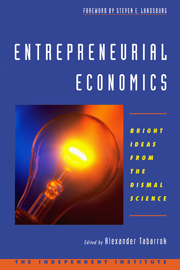Two proposals to aid the world’s poorest countries are currently circulating in Washington. One of these proposals would bring permanent improvement to poor countries and, amazingly, it would also increase the standard of living in the United States. The other proposal would at best offer only small and probably temporary gains to poor countries and it would not benefit the United States economically. The first proposal has the support of virtually all economists from the time of Adam Smith on down to the present. The latter proposal is supported by a well-known rock star. Guess which proposal the White House opposes and which one it supports?
OK, that one was easy. The White House sides with U2’s Bono in supporting debt relief and they oppose the World Bank’s recent proposal to lower trade barriers for the third world. Debt relief is a mediocre idea, not a bad one. Much of the debt to poorer countries will never be repaid and this fact should be recognized. Moreover, much of the debt is owed to the IMF and World Bank who lent the money to corrupt dictators who, when they weren’t using the money to line their pockets or those of their cronies, were wasting the money on grandiose public projects. The IMF and World Bank debt to poorer countries should be immediately written off. Virtually every poor country earns enough in exports to supports its private debt and this debt should be repaid so that entrepreneurs in these countries can freely borrow to fund productive investments.
Some economists suggest that the debt should be written off only if the poorer countries agree to reform their economies. While this sounds great in principle, who is to define reform and monitor its progress? Why the IMF and the World Bank—the very same organizations who made the bad loans in the first place. Ironically, the IMF and the World Bank are now engaged in a catfight about who is at fault for the disaster in Asia. In a recent news magazine article, Joseph Stiglitz, former chief economist for the World Bank, says you can’t trust the third-rate economists at the IMF not to do something stupid. I agree. I would add only that you can’t trust the economists at the World Bank either. About the best thing that could come out of a debt write-off is a reorganization of the World Bank and IMF that would get them out of the lending for development business.
The poorest countries in the world need trade relief more than debt relief. Fifty percent of the labor force in Kenya is unemployed and GDP per capita is $1500, about 20 times less than in the United States. Yet if the Senate has its way with the African trade bill, an African weaver who wants to export garments to the United States will be required to buy his fabrics in America. Needless to say, African weavers will not soon be weaving fleece. At the price of further misery in Africa—and higher prices for U.S. consumers—a tiny slice of the American economy will be "protected" from African competition.
Debt relief does nothing for the United States and little for the poorest nations of the world. Trade relief brings lower prices to U.S. consumers and it raises the average wage of U.S. workers. Most importantly, trade relief is the best way to raise the standard of living of the world’s poorest and most destitute people. Will Washington choose the policy that offers gains all around? Sorry, silly question.












